Table of Contents
Introduction
In today’s digital world, having a website is not enough. Millions of websites exist online, but only a few get real visitors, leads, and sales. The reason is simple—visibility. If people cannot find your website on search engines like Google, your website will remain hidden. That is where SEO (Search Engine Optimization) comes in.
SEO is the process of improving your website so that it appears higher in search engine results when someone searches for products, services, or information related to your business. Understanding why SEO is important for your website is the first step toward building a strong online presence. Without SEO, your website is like a shop hidden in a deserted street—nobody knows it exists, no matter how good your products or services are.
What is SEO in Simple Words?
SEO is all about helping search engines understand your website and match it with what people are looking for. Think of Google as a massive library. When someone types a query, Google’s job is to show the most relevant, trustworthy, and useful “books” (websites). SEO makes sure your website is one of those top results.
In simple terms:
- SEO = Visibility
- Visibility = More Visitors
- More Visitors = More Sales, Leads, or Growth
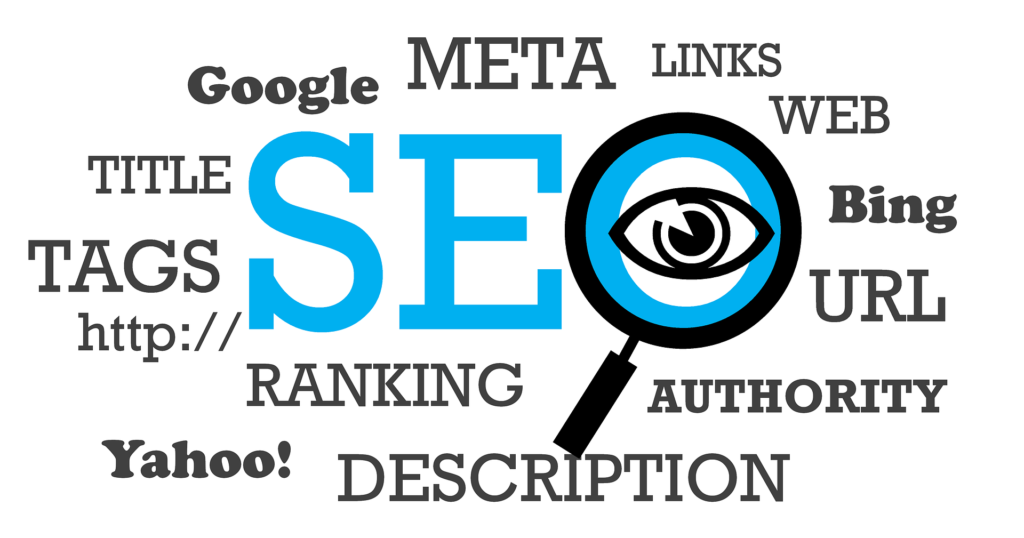
That is why SEO is important for your website—it connects you directly with people who are already searching for what you offer.
Why SEO Matters More Than Just Paid Ads
You might ask, “Why not just run ads instead of doing SEO?”
Good question. Ads can bring traffic, but only as long as you pay for them. The moment you stop spending, the traffic disappears. SEO, on the other hand, builds long-term visibility. Once your website ranks, it can bring visitors for months or even years without additional cost.
This is one of the biggest reasons why SEO is important for your website. It creates a sustainable way of attracting visitors, unlike ads which are temporary.
Example:
- Ads = Renting a house. The moment you stop paying rent, you lose it.
- SEO = Building your own house. It takes time, but once built, it’s yours for the long term.
How Search Engines Work (The Basics)
To understand why SEO is so powerful, let’s look at how search engines like Google work.
- Crawling – Search engines send bots to discover new pages.
- Indexing – The discovered pages are stored in Google’s index (like a huge library).
- Ranking – When someone searches, Google shows the most relevant and high-quality pages.
If your website is not optimized, Google’s bots may not understand it well. That means you might never appear in search results, even if your content is great. This explains why SEO is important for your website—because without it, search engines simply cannot recognize your website properly.
The Direct Benefits of SEO for Any Website
Let’s break down some practical reasons why SEO is important:
- Increases Visibility
- Appearing on page one of Google means more people see your brand.
- Brings Targeted Traffic
- SEO attracts people who are already searching for what you sell.
- Cost-Effective Marketing
- Unlike ads, you don’t pay for every click.
- Builds Trust and Credibility
- People trust Google’s top results.
- Works 24/7
- SEO never sleeps. Your website can bring leads even at midnight.
Example to Understand Better
Imagine you own a bakery in Agra. You create a website but do not do SEO. If someone types “best bakery in Agra” on Google, your website won’t appear. That means potential customers will go to your competitors instead.
Now imagine you optimize your site with SEO. Your website appears in the top 3 results for “best bakery in Agra.” Suddenly, hundreds of people searching for bakeries find you, visit your shop, and place orders. This is the simplest way to understand why SEO is important for your website.
Different Types of SEO and Their Role in Website Growth
To understand deeply why SEO is important for your website, you need to know the different types of SEO. Each type focuses on a different part of your website and together, they build strong visibility.
1. On-Page SEO
This is about optimizing the content and structure of your web pages. It tells Google what your website is about.
Key elements:
- Title Tags – The page title should include the main keyword.
- Meta Description – A short summary that attracts clicks.
- Headings (H1, H2, H3) – Organize content with keywords.
- URL Structure – Clean and keyword-friendly URLs.
- Content Optimization – Clear, valuable content with keywords naturally included.
👉 Example:
If your page is about “Digital Marketing Course in Agra,” your title could be “Best Digital Marketing Course in Agra – Learn SEO, Ads & More”.
This helps Google understand the topic and improves your chance to rank. That’s why on-page SEO is important for your website.
2. Off-Page SEO
This is about building your website’s reputation outside your site. Search engines trust websites that are mentioned, linked, and shared by others.
Key elements:
- Backlinks – Links from other websites to your site.
- Social Signals – Shares and mentions on social media.
- Brand Mentions – When your brand name is mentioned online.
👉 Example:
If 10 blogs write about your bakery and link to your site, Google assumes you’re trustworthy. This is a big reason why SEO is important for your website—without off-page SEO, your site will look weak compared to competitors.
3. Technical SEO
This focuses on the backend of your website. Even if you write the best content, Google won’t rank it if the site is slow, broken, or hard to crawl.
Key elements:
- Site Speed – Fast loading improves ranking.
- Mobile Friendliness – Most people search from phones.
- Secure Website (HTTPS) – Builds trust.
- XML Sitemaps & Robots.txt – Helps search engines crawl correctly.
- Fixing Errors (404, broken links) – Smooth user experience.
👉 Example:
If your bakery site takes 10 seconds to load, people leave, and Google pushes it down. This proves why technical SEO is important for your website.
4. Local SEO
This is for businesses targeting customers in a specific city or area. It helps you appear in Google’s local results (Google Maps and “near me” searches).
Key elements:
- Google Business Profile optimization
- Local keywords (e.g., “bakery in Agra”)
- Customer reviews on Google
- Local backlinks
👉 Example:
When someone types “bakery near me” or “best bakery in Agra,” local SEO ensures your shop appears at the top of Google Maps. That’s another reason why SEO is important for your website—it helps attract nearby customers.
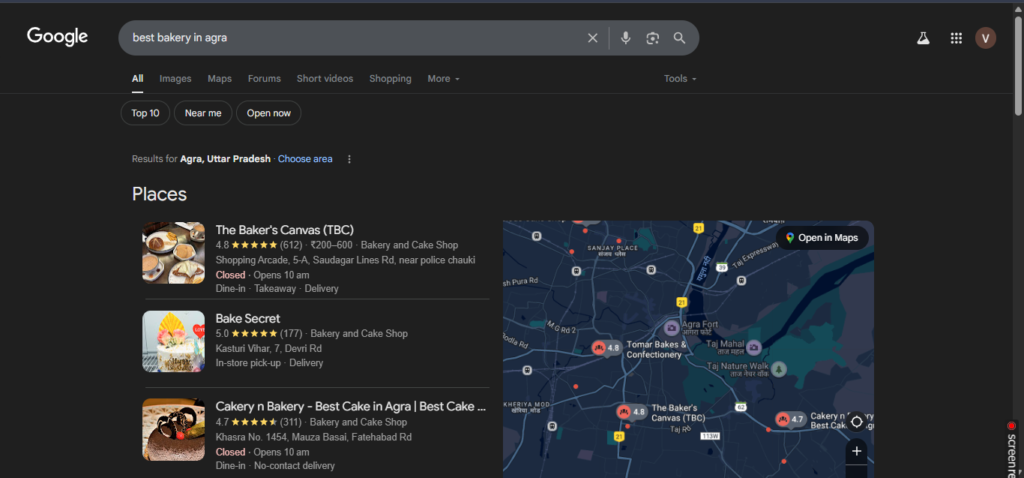
5. Content SEO
Content is the heart of SEO. Without quality content, your website cannot rank. Search engines always prefer websites that provide useful and original information.
Key elements:
- Blog Posts targeting customer questions
- Guides, FAQs, Case Studies
- Keyword research for trending searches
- Regular updates to keep content fresh
👉 Example:
If you write a blog on “10 Best Cakes for Birthdays in Agra,” people searching for cakes will land on your site, and many will order from you. This proves again why SEO is important for your website.
Key Benefits of SEO for Your Business
Now that you know the types of SEO, let’s see how they directly benefit your website and business.
1. Long-Term Results
Unlike paid ads that stop the moment you stop paying, SEO keeps working. Once you rank, you can enjoy free traffic for a long time.
2. Builds Brand Awareness
When people see your website again and again in search results, your brand becomes familiar and trustworthy.
3. Targets High-Intent Users
SEO traffic comes from people who are actively searching. They are more likely to buy compared to social media users who are just scrolling.
4. Improves User Experience
Google rewards websites that are easy to navigate, fast, and mobile-friendly. So SEO forces you to build a better site for users.
5. Higher ROI (Return on Investment)
SEO brings customers without the ongoing costs of ads. It gives better long-term value for every rupee spent.
Step-by-Step SEO Process (Beginner-Friendly Guide)
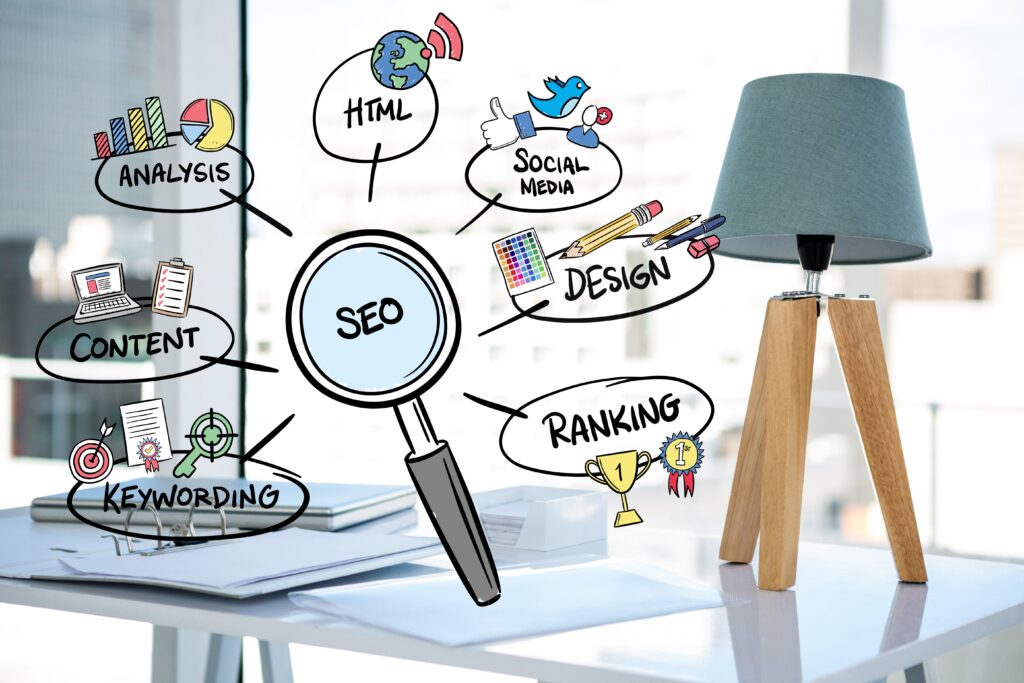
If you’re wondering how SEO actually works in real life, here’s a simple step-by-step process. This will also help you understand clearly why SEO is important for your website.
Step 1: Keyword Research
Everything starts with keywords. These are the exact words people type into Google.
- Use tools like Google Keyword Planner, Ubersuggest, or SEMrush.
- Find keywords with high search volume but low competition.
- Focus on long-tail keywords (e.g., “best chocolate cake shop in Agra”) instead of just “cake.”
👉 Example:
A clothing store can target “affordable men’s shirts online” instead of just “shirts.” This attracts ready-to-buy customers.
Step 2: Competitor Analysis
Check which websites are already ranking for your keywords.
- Look at their titles, descriptions, and content length.
- Study their backlink sources.
- Notice what they are doing better—and then improve on it.
👉 Example:
If your competitor’s blog has “Top 5 Birthday Cakes,” write a detailed guide on “Top 10 Birthday Cakes with Flavors & Prices.”
Step 3: On-Page Optimization
Now optimize your website page by page.
- Add the main keyword in the title tag.
- Write a compelling meta description.
- Use keywords in H1, H2, H3 headings.
- Add internal links (linking to your own other pages).
- Use alt text for images.
👉 Example:
Instead of writing: “Click here to read about cakes.”
Write: “Read our guide on the best birthday cakes in Agra.” (Keyword-rich and clear).
Step 4: Content Creation
Content is what makes people stay on your site.
- Create blogs, product descriptions, FAQs, videos, infographics.
- Make sure every piece of content solves a problem.
- Keep sentences short and easy to understand.
👉 Example:
Instead of only writing “We sell cakes,” create a guide: “How to Choose the Best Birthday Cake for Kids.”
This builds trust and answers customer questions before they even ask.
Step 5: Technical SEO Fixes
Your site should be fast, secure, and mobile-friendly.
- Test your website speed using PageSpeed Insights.
- Use HTTPS (SSL certificate).
- Make sure the site is mobile responsive.
- Submit your sitemap to Google Search Console.
👉 Example:
If your bakery website takes 2 seconds to load, users stay. If it takes 10 seconds, they leave. That’s why technical SEO is important for your website.
Step 6: Link Building (Off-Page SEO)
Get other websites to link to yours.
Ways to build links:
- Guest posting
- Business directory listings
- Social media shares
- Collaborations with bloggers
👉 Example:
If a popular food blogger links to your bakery, Google sees you as trustworthy.
Step 7: Track and Improve
SEO is not one-time work—it’s continuous.
- Use Google Analytics to check traffic.
- Use Search Console to track rankings.
- Update old content every few months.
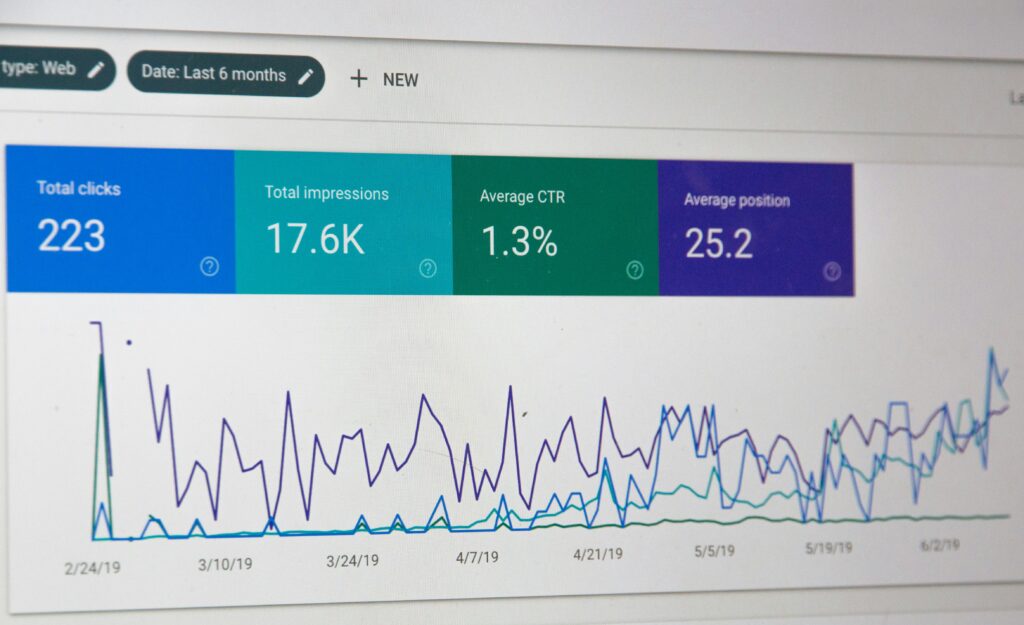
👉 Example:
If a blog from last year is losing traffic, update it with fresh tips and new keywords.
Real-Life Case Studies – Why SEO is Important for Your Website
Sometimes, the best way to understand SEO is through real-world success stories.
Case Study 1: Local Restaurant in Agra
A small restaurant optimized its Google Business Profile, added reviews, and targeted keywords like “best thali in Agra”. Within 3 months, they started ranking in Google Maps and doubled their daily walk-ins.
👉 Lesson: Local SEO can directly increase footfall for physical businesses.
Case Study 2: Online Clothing Store
A clothing startup wrote detailed product descriptions and blog posts like “How to Style Kurtis for College Girls.”
Within 6 months, organic traffic grew by 70%, and sales improved without extra ad spend.
👉 Lesson: SEO can reduce dependency on paid ads.
Case Study 3: Freelance Digital Marketer
A freelancer started blogging about SEO, Google Ads, and marketing strategies. His website began ranking for keywords like “freelance SEO expert in India.”
Clients started contacting him directly, and he stopped relying on job portals.
👉 Lesson: SEO builds authority and trust for individuals too.
SEO vs Other Marketing Channels
Many people ask, “Why should I invest in SEO when I can just run ads or promote on social media?”
The answer lies in the long-term value of SEO compared to other channels. Let’s break it down.
1. SEO vs Paid Ads (Google Ads, Meta Ads)
- Paid Ads: You pay money → you get traffic. Once you stop paying → traffic stops.
- SEO: You put in effort → you get free, long-lasting traffic even after months or years.
👉 Example:
If a bakery spends ₹500 per day on ads, they’ll only get leads until the budget lasts.
But if the same bakery invests in SEO, they’ll keep ranking for “best cakes in Agra” without paying per click.
This shows why SEO is important for your website—it builds an asset that keeps bringing visitors.
2. SEO vs Social Media Marketing
- Social Media: Great for brand awareness, but posts have a short lifespan (24–48 hours).
- SEO: A blog or optimized page can bring traffic for years.
👉 Example:
A fashion brand posts on Instagram. After 2 days, engagement drops.
But a blog titled “Best Saree Trends in 2025” can rank in Google and attract traffic for months.
That’s why SEO is important for your website—it gives evergreen visibility.
3. SEO vs Email Marketing
- Email Marketing: Works only if you already have a strong email list.
- SEO: Attracts new visitors who don’t know you yet.
👉 Example:
If you’re launching a new coaching center, email won’t help unless you already have students’ data.
But with SEO, people searching for “best coaching classes near me” can discover you.
This proves again why SEO is important for your website—it helps you reach new customers organically.
4. SEO Complements Other Channels
The smartest businesses don’t choose between SEO and other channels. They combine them.
- Run ads for immediate leads.
- Use social media for community building.
- Use SEO for long-term free traffic.
👉 Example:
An e-commerce store can run ads for festive sales but also depend on SEO blogs like “Top Diwali Gift Ideas” to get free seasonal traffic every year.
The Role of AI and Future of SEO
Search engines are evolving fast with Artificial Intelligence (AI). Understanding this helps us see clearly why SEO is important for your website in 2025 and beyond.
1. Google’s AI Algorithms
Google now uses AI models like:
- RankBrain → Understands user intent.
- BERT → Focuses on natural language.
- MUM → Can process text, images, and even video.
- SGE (Search Generative Experience) → AI-powered answers directly in search.
👉 Meaning: You can’t trick Google with keyword stuffing anymore. You must provide genuine, helpful content.
2. Voice Search & Conversational SEO
People now search by speaking:
- “Which is the best cake shop near me?”
- “How much does SEO cost in India?”
👉 SEO needs to focus on long-tail, natural phrases. That’s another reason why SEO is important for your website—it helps you adapt to changing search behavior.
3. AI Tools in SEO
AI tools like ChatGPT, Jasper, SurferSEO, SEMrush AI can help with:
- Content ideas
- Keyword clustering
- Competitor analysis
- Automated reporting
But remember: AI is just a helper. Google still prefers human-written, experience-based content.
4. Future of SEO
In the next 5 years, SEO will focus more on:
- User Experience (UX)
- E-E-A-T (Experience, Expertise, Authority, Trust)
- Visual + Video SEO
- Hyper-local SEO
👉 This means businesses that invest in SEO today will stay ahead tomorrow.
Common SEO Mistakes to Avoid
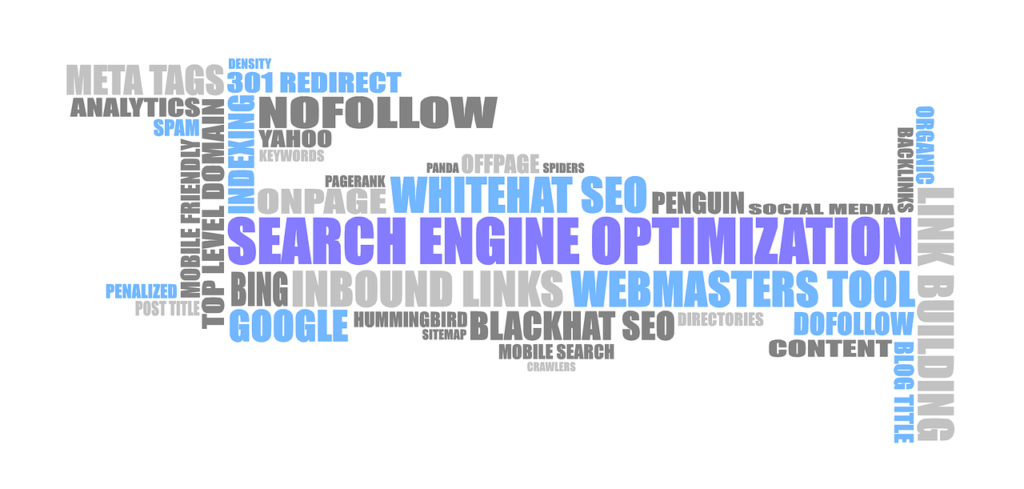
Many businesses know SEO is important, but they make simple mistakes that stop them from ranking.
If you want to succeed, avoid these traps:
1. Ignoring Keyword Research
Some businesses write content blindly without knowing what people are searching for.
👉 Example: Writing a blog on “My Favorite Cake Recipe” instead of “Best Chocolate Cake Recipe” which people actually search for.
✅ Lesson: Always research keywords first. This is a key reason why SEO is important for your website—it helps you target what customers actually type in Google.
2. Keyword Stuffing
Old-school SEO meant repeating keywords again and again. Today, it can get you penalized.
👉 Wrong: “Buy shoes online, cheap shoes online, best shoes online India.”
👉 Right: “Discover stylish and affordable shoes online in India with free delivery.”
✅ Lesson: Use keywords naturally in your content.
3. Weak Title Tags & Meta Descriptions
Google uses these to decide if people should click your link.
👉 Example:
Bad title: “Home”
Good title: “Best Home Decor Ideas in 2025 | Affordable & Modern”
✅ Lesson: Optimize every page title and meta description. This directly affects visibility and click-through rate.
4. Slow Website Speed
If your site takes more than 3 seconds to load, users bounce away.
👉 Example: An online shop lost 30% of sales because product pages loaded too slowly.
✅ Lesson: Use tools like PageSpeed Insights and GTmetrix to fix speed issues.
5. Not Mobile-Friendly
70%+ of users in India browse on mobile. If your site isn’t mobile-optimized, you’ll lose traffic.
✅ Lesson: Make sure your website is responsive and easy to navigate on all devices.
6. No Quality Backlinks
Some people focus only on on-page SEO and ignore backlinks. But Google sees backlinks as a “vote of trust.”
👉 Example: If Times of India links to your website, your authority shoots up.
✅ Lesson: Create shareable content, guest posts, and collaborate to get quality links.
7. Thin or Duplicate Content
Copy-pasting product descriptions from competitors or writing only 200 words per page doesn’t work.
✅ Lesson: Write unique, valuable, and in-depth content.
8. Ignoring Local SEO
Many small businesses forget local SEO. If you run a restaurant, ranking for “best restaurant near me” is more valuable than ranking for “top restaurants in India.”
✅ Lesson: Optimize Google Business Profile, add reviews, and use local keywords.
9. Not Tracking Performance
Many businesses do SEO once and forget to measure results.
👉 Example: Not knowing which blog brings traffic or which keyword is ranking.
✅ Lesson: Use Google Analytics and Google Search Console to track SEO progress.
How to Make Your SEO Strategy Fail-Proof
Now that you know the mistakes, let’s talk about how to create a winning SEO plan.
1. Start with Clear Goals
Ask:
- Do I want traffic?
- Do I want sales?
- Do I want leads?
👉 Example: An e-commerce brand might focus on sales keywords like “buy shoes online,” while a blogger may focus on informational keywords like “how to clean leather shoes.”
2. Build a Keyword Strategy
- Use a mix of short-tail, long-tail, and local keywords.
- Group them by intent: Informational, Navigational, Transactional.
👉 Example:
- Informational: “How to start a blog”
- Transactional: “Best web hosting for bloggers”
This keyword mapping is exactly why SEO is important for your website—it ensures every page has a purpose.
3. Create High-Quality Content
- Answer user intent.
- Use headings (H1, H2, H3).
- Add FAQs, images, and videos.
- Keep it easy to read.
4. Optimize Technical SEO
- Fast loading speed
- Mobile-friendly design
- Secure with HTTPS
- Proper site structure (sitemaps, internal linking)
5. Build Authority
- Guest posts on relevant sites
- Collaborations with influencers
- PR mentions
- Shareable resources (guides, infographics, tools)
6. Monitor & Improve
SEO is not “set and forget.”
Check:
- Which pages bring the most traffic?
- Which keywords are slipping?
- What content needs updating?
👉 Example: A blog written in 2022 about “Top Gadgets” must be updated for 2025 to stay relevant.
The Future of SEO & Final Conclusion
The Future of SEO
SEO is not just about keywords anymore—it’s about understanding users, technology, and trends.
Here’s what the future holds:
- AI-Driven Search
Google’s AI systems like RankBrain, BERT, and MUM already understand search intent better than humans sometimes do. Soon, AI will personalize search results even more.
👉 This means your content must answer real human questions instead of just matching keywords. - Voice Search
With Alexa, Siri, and Google Assistant, more people are using voice queries.
👉 Example: Instead of typing “best pizza Agra,” people say, “Hey Google, where’s the best pizza near me?”
Optimizing for conversational queries will be key. - Mobile & Local SEO
Almost all searches are mobile-first. Local intent (“near me” searches) is exploding. Businesses that ignore mobile optimization will struggle. - Search Generative Experience (SGE)
Google’s new AI-driven Search Generative Experience shows AI answers directly in search results.
👉 If your content is helpful, in-depth, and trustworthy, Google may feature it in these AI snapshots. - E-E-A-T (Experience, Expertise, Authoritativeness, Trustworthiness)
Google values websites that prove real expertise.
👉 Example: A doctor writing a health blog will rank higher than a random blogger without medical credentials.
Final Conclusion: Why SEO is Important for Your Website
Let’s bring everything together.
SEO is not just a marketing trick—it’s the foundation of online visibility.
When you invest in SEO:
- You rank higher and appear where customers are searching.
- You build trust and credibility with your audience.
- You drive traffic without paying for ads every single day.
- You stay competitive in an online-first world.
- You future-proof your business as AI, voice search, and mobile searches evolve.
👉 Simply put: If your website is not optimized for SEO, you’re invisible.
And in the digital age, being invisible means losing customers to your competitors.
Frequently Asked Questions (FAQs)
How long does SEO take to show results?
SEO is a long-term strategy. Depending on your industry and competition, you can start seeing improvements within 3–6 months. However, sustainable and high rankings often take 6–12 months of consistent work.
Why SEO is important for your website if you already run ads?
Paid ads stop working the moment you pause your budget, but SEO keeps driving traffic even when you’re not actively spending. That’s why SEO is important for your website—it builds a foundation of free, organic visitors over time.
Is SEO only about keywords?
No. Keywords are important, but SEO also includes user experience, site speed, backlinks, mobile optimization, and quality content. It’s a complete ecosystem that ensures your website ranks higher and retains visitors.
Can small businesses benefit from SEO?
Absolutely. SEO levels the playing field by allowing small businesses to compete with larger brands. Local SEO, for example, helps small shops appear in “near me” searches, bringing more foot traffic and online leads.
What is the biggest mistake people make with SEO?
The biggest mistake is expecting instant results. Many businesses quit too early or rely on shortcuts like keyword stuffing and spammy backlinks. Real SEO success comes from patience, consistency, and focusing on user needs.


Pingback: Boost Your Growth with AI and SEO Optimization | Proven 2025 Strategies
Pingback: Best Digital Marketing Agency in Agra for 2025 Success
Pingback: What Is SEO(Search Engine Optimization) & How It Works in 2025
Pingback: How to Setup & Grow with Google Small Business Tools 2025
Pingback: How to See What Keywords a Site Ranks For & Improve #1Ranking Today